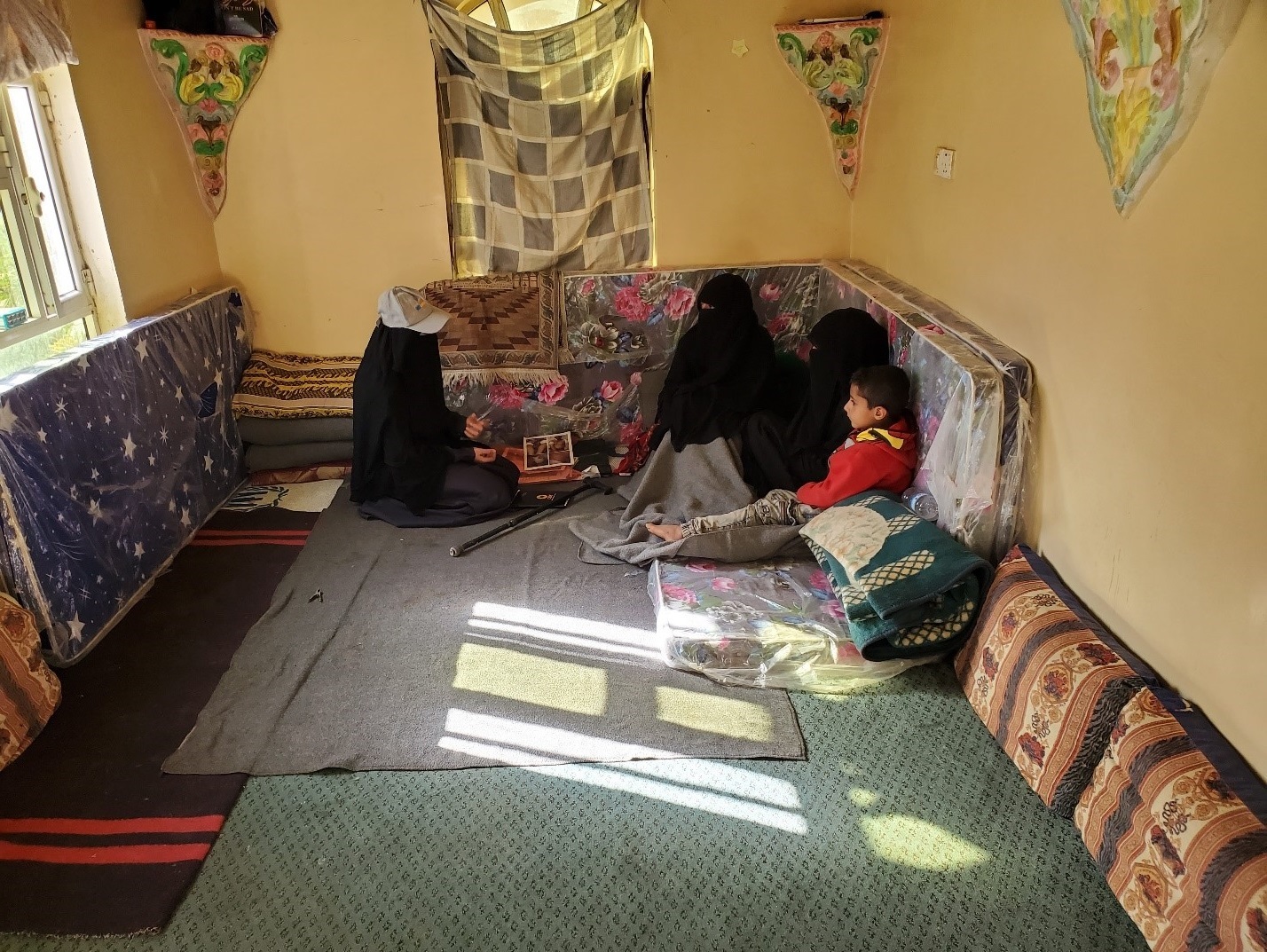The prolonged conflict in Yemen has devastated the country, destroyed livelihoods and left Yemenis facing a catastrophic humanitarian crisis. Many families have fled violence numerous times, looking for safety and a source of income. During the last six years, nearly four million Yemenis were forced to make the difficult decision of leaving behind their homes, as well as their possessions and livelihoods, and starting over again.
“I have never thought that one day we would lose our home, income and family members and have to start looking for safety,” says Asma, an illiterate mother of three children. Asma was raised in Hajjah governorate, to the northwest of Yemen. Like most families in rural areas, Asma’s family depended on herding and farming as their main source of income for a simple but calm life.
“My village turned to ground-fighting and our home was completely gutted by fire,” says Asma. “Life became horrible and unbearable there. It was unwise to stay any longer, so we left everything behind and headed towards Amran governorate, searching for safety.”
Recalling the day they fled she says: “Shrapnel rained down on the village and my husband was wounded. As we were walking on foot, I fell down and hurt my spine. The fourth vertebra was broken and I am bedridden and unable to move.”
In countries like Yemen, internally displaced people have been driven from their homes and deprived of security, shelter, food, water and livelihoods. Asma and her family reached Amran and didn’t know where to live. “One generous person gave us a room to stay in until we could find an apartment,” she says. “We literally had nothing; no blankets, food or clean water. We were devastated and couldn’t secure much-needed medications for my husband and me.”
According to the International Organization for Migration Amran governorate hosts the second-highest number of internally displaced people (IDPs) in Yemen. Conditions for displaced families in Amran is worsening every day due to the lack of basic services.
“My husband went to hospitals in Amran to treat the wounds in his body,” says Asma. “But he was referred to Sana’a for treatment, which we couldn’t afford. He kept thinking of our past life and how we lost everything, so he ended up with a mental health disorder.” Due to his mental condition, Asma’s husband deserted the family, leaving Asma and her kids alone to bear the burden of displacement life.
Through the UNFPA-led multi-agency Rapid Response Mechanism (RRM), CARE continues to help all newly displaced people in Amran governorate with lifesaving emergency packages.
Asma’s family received a standard relief package that includes ready-to-eat food, basic hygiene materials and a female transit kit, which were extremely appreciated by the family. She expressed her happiness for the support. Such a response to the new arrivals of displaced families is critical to ease their suffering, but though it provides instant relief to displaced families that have endured so much, more sustainable solutions must be found.
“I hope I can receive medical treatment soon before I get even worse,” says Asma. “I also want my kids to go to school and to have a brighter future.”
